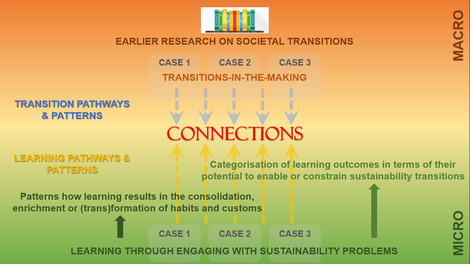Katrien Van Poeck - LESTRA
Description of the PI

Katrien has a PhD in educational sciences (University of Leuven) and a Master in social work (Ghent University). Theoretically, her work has been inspired by authors in the fields of educational theory, political theory, sustainability transition studies and science and technology studies. Methodologically and empirically, she builds on pragmatist analytical frameworks. Katrien has a special interest in the relation between ESE research and practice and engages in initiatives to foster the co-creation of better sustainability education in collaborative settings with researchers and practitioners.
Currently, Katrien is also half-time affiliated to Uppsala University (Sweden) as a Marie Skłodowska-Curie Fellow where she conducts research on how university education can fruitfully contribute to sustainability transitions. She is a member of the research group SMED – Studies of Meaning-making in Educational Discourses.
Description of the project

This project’s objectives are 1) to develop a new analytical and conceptual framework for investigating the connections between learning processes, the transformation of habits and customs, and (potential) STs; 2) to identify the key conditions for learning to contribute to STs; and 3) to develop a roadmap for future research in diverse settings and contexts. Achieving a breakthrough requires us to successfully connect the process and outcomes of micro learning processes to the emergence of macro societal transitions.
Transactional pragmatism provides valuable inspiration to investigate the learning that takes shape in response to sustainability problems that are increasingly disturbing our habitual ways of acting. It will be used to develop a novel analytical and conceptual framework by building on earlier work in environmental and sustainability education research, didactics and sustainability transition studies.
The newly developed analytical toolbox will be applied to empirical data collected in three case studies on sustainable food systems, sustainable mobility, and a sustainable way of handling plastics. The analyses focus on identifying key patterns of how learning through engagement with sustainability problems results in the consolidation, enrichment or (trans)formation of habits and customs, assessing and categorising the outcomes of learning episodes in terms of their potential to contribute to STs, and analysing (changes in) the socio-technical systems in the three cases in order to identify and describe potential STs in-the-making. Synthesis should result in successfully tracing the connections between the learning process, outcomes of learning and (potential) STs. Building upon this, we will develop hypotheses and a research agenda as a roadmap for future research.
Contact